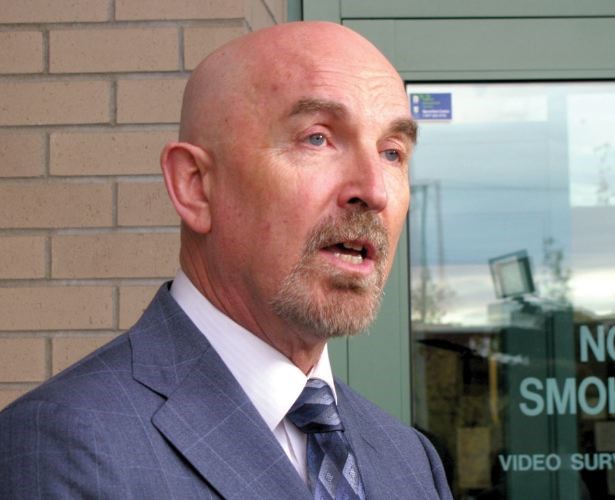Greg Matters was not attempting "suicide by cop" when an RCMP emergency response team shot and killed the Canadian military veteran during a standoff in Pineview last year, the psychiatrist who was treating him for post traumatic stress syndrome told a coroners' inquest Wednesday.
There was a time when Matters was drinking heavily as a way to deaden his emotions and had gone so far as to stand on a chair with a noose around his neck, but by the time of the standoff he was not suicidal, Dr. Greg Passey testified at the Prince George courthouse.
"He did not have a death wish, he did not want to die, he did not want anyone to be killed," Passey said. "Given some space and some time, none of this would have been necessary."
Passey, a former military veteran himself, said he had been treating Matters for PTSD for about a year and felt he was making progress.
However, he also thought Matters needed at least another year of therapy and would need to develop lifelong coping strategies to prevent the condition from being triggered, he told the inquest.
He said PTSD occurs when a panic attack kicks in due a triggering event of some kind, created by a past traumatic event, that causes the brain to drop strictly into survival mode even when there is no imminent threat.
In Matters' case, persons in positions of authority, particularly those in uniform, would set him off, as would perceptions of injustice, Passey said.
A symptom for Matters was to use threatening language, even warning he will shoot and kill people if they stepped on his property. Prior to his death, Passey said he was working on toning down Matters' language and thought progress was being made, particularly after he successfully defended himself in court from an allegation of assault.
In the confrontation with RCMP, Matters had dropped into a "fight or flight" mode and fell back back onto his soldier's training, according to Passey.
"He wasn't trained to run," Passey said.
A sequence of events that started with Matters chasing down a vehicle he thought had been doing doughnuts in the driveway of the Pinko Road home where he had been living ended about 40 hours later on Sept. 10, 2011 when a member of the ERT shot him to death at about 7:15 p.m.
He was shot twice after an attempt to subdue him with a stun gun had failed. Matters had turned towards the officer who had deployed the stun gun and raised the hatchet he was carrying when another officer, convinced his colleague was in danger, pulled the trigger.
Passey said the biggest mistake was to simply surround Matters and fail to put him in contact with someone he trusted.
"The last thing you want to do in an individual with PTSD is corner them in their home such that they feel that they have no options," Passey said.
Had he been given the chance, Passey said he is convinced he could have talked Matters down. When an RCMP member did get in contact with him, Passey said he asked if he could talk to Matters but she "deflected" his question by saying she wanted more information about Matters.
For some reason the call broke off. Passey said he waited five minutes and then called back and reached the member once again.
They were talking about strategies to deal with the situation when the member stopped the conversation to say RCMP had convinced him to come out and ended the call. Passey found out the next day that Matters had died.
Even putting Matters in touch with his mother or a lawyer or a neighbour he trusted would have helped, Passey said. He agreed with a suggestion from lawyer Andrew Kemp, who is representing the Attorney General and the RCMP, that establishing a pool of local mental health professionals that police could reach in such situations is worthwhile.
The ERT members were dressed in camouflage and armed with M-16 automatic rifles and, for a time, an RCMP helicopter was flying overhead.
Passey commended RCMP for calling off the helicopter at Matters' request while negotiating with him over the phone, but given that occurred about 15 minutes before he was killed, the effect on Matters was still in place.
"It's great that they listened, I appreciate that, and if they pulled the helicopter away, that was the right thing to do, but that doesn't mean then that the effect was all gone," Passey said. "
As many as 40 people each day have been attending what at times has been an emotionally-charged hearing. After hearing all the testimony, the seven-person jury will determine the cause of death and make recommendations to prevent similar incidents from happening again.
The inquest continues today, 9 a.m. start.



